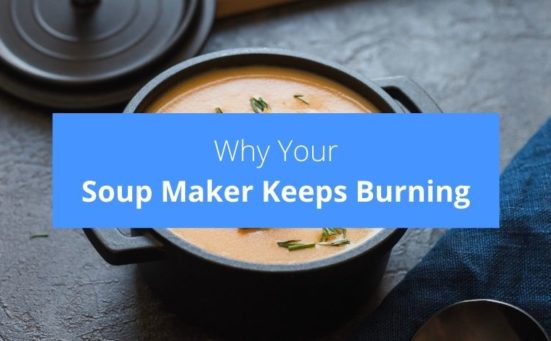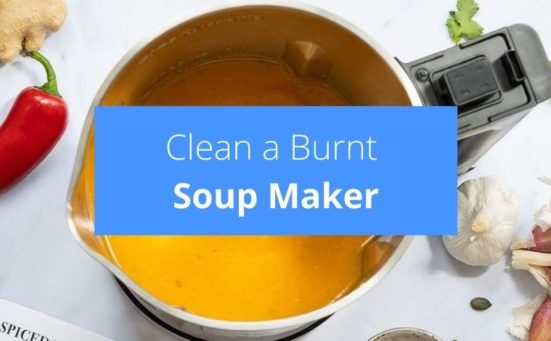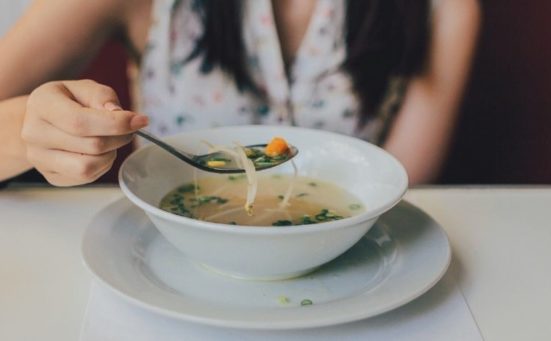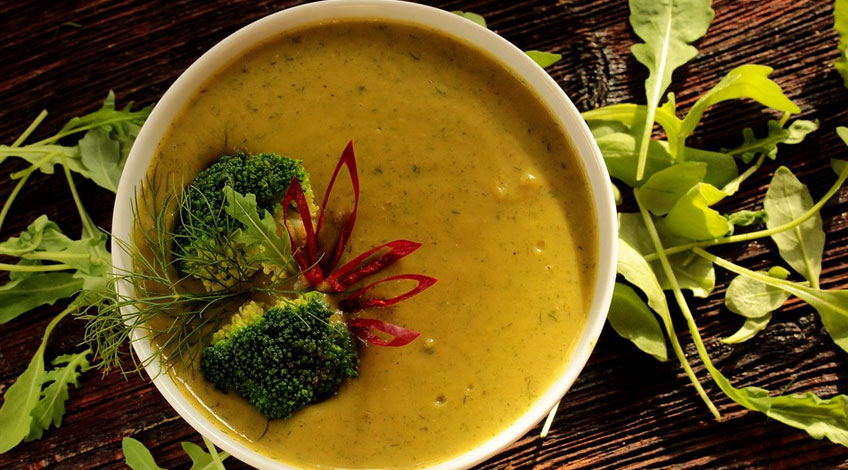
Is It Bad To Eat Soup Everyday? Or Can It Be Good For You?
I can remember back in the 80s when the cabbage soup diet became the latest in a long line of weight loss programs. It was claimed that by following this diet and following the strict eating regime you could lose between 10 and 15 lbs per week. There was a caveat though, as the name suggests, all soups had to be cabbage-based.
Also, the only food you could eat was soup, cabbage soup, in fact, this had an embarrassing side effect on many people. The problem with cabbage is it can cause wind, the more cabbage you consume, the windier you become.
But are soup-only diets healthy? Can you survive on just soup? The aim of this post is to answer these and other questions related to soup-only diets.
Is It Bad To Eat A Lot Of Soup?
As long as it’s not your only meal, and as long as your soups are low in fat and low in sodium, there is absolutely no problem with eating soup every day. If you are planning on eating a lot of soup be sure it’s home-made, with a range of vegetables and lean meat or pulses. Steer clear of canned soups and processed soups as these are known to be detrimental to your health.
Getting your own soup maker will allow you to be completely in control of what goes in your soup, so you can definitely make sure that you’re only consuming the good stuff if you go down that route.
Can Soup Make You Fat?
Soups can make you fat, especially shop-bought, tinned or packet soups which contain high-fat contents. And any canned soup that starts with “cream of” in the name. When making your own soups steer clear of:
- Fatty meats
- Creams
- Cheese
- Excess bread
- Butters
For instance, French onion soup is a healthy low-fat soup, until you add the cheese on toast that comes with it. Chicken soup can be a healthy meal unless you mop it up with bread rolls.
Can I Lose Weight Eating Soup Everyday?
Eating soup every day, especially low fat home-made soup can help you to lose weight. In many studies the higher the soup consumption the lower body fat the individual has. Long-term, however, this kind of diet is unsustainable, it lacks various vital nutrients, and is boring.
Boring meals are one of the main causes of bingeing on junk food. Also, stay away from soups that are high in salt, fat, or preservatives as these all have the potential to make you gain weight.
Is Soup Enough For Dinner?
Soup is usually served as a starter, an appetiser for the main meal to come. Home-made nutrition-packed low fat, low sodium soups are perfect for a light meal. But although they fill your stomach, as it’s mainly liquid, this will soon pass leaving you hungry again. Then you’ll be much more likely to eat something unhealthy and fattening or salty to ease your cravings.
Can I Live Off Of Soup?
The answer to this question is yes for a short time, but long-term you would get ill. Why? Because all-soup diets lack a variety of essential nutrients necessary for your body to function properly.
In the short term, eating a low salt, low fat, vegetable-based soup will help you to lose weight, make you feel fuller for longer, and satisfy your appetite. Soups should make up part of your diet but it is unhealthy, not to mention boring to eat only soup.
What Is The Healthiest Soup?

Chicken soup is often referred to as “Jewish penicillin” because of its therapeutic properties when suffering from the common cold. My grandmother used to swear by it, and now scientists are starting to agree with her. A study undertaken in the United States in the year 2000, found that home-made chicken soup had a calming effect on inflammation of the upper respiratory system, helped to clear excess mucus, and helped the body fight off infection.
Eating soup for health benefits can be a bit of a minefield, especially if you are eating canned, dried or shop-bought soups. These tend to be high in sodium, high in fat, and high in calories,
not to mention the addition of possibly harmful chemical additives.
The healthiest soups are home-made soups made with a mixture of healthy nutritional vegetables and low-fat meats and/or pulses. Soups like home-made vegetable soup, tomato soup, carrot and lentil soup, minestrone soup and of course, chicken soup.
Is Eating Chicken Soup Good For Weight Loss?
One of the latest lose weight fast diets is the chicken soup diet. The idea is that all meals should be home-made chicken soup apart from breakfast. You are given 5 options for breakfast and a recipe for making chicken soup.
The idea is to eat small regular meals throughout the day all of chicken soup. If you can stick to it, this is a healthy, nutrient-rich, low-calorie diet and you will lose weight. Most of these plans recommend you only use them for 7 days and in all honesty, that’s probably more than long enough to just eat chicken soup.
There have been quite a few medical studies over the past few years that have concluded that people who consume soup on a regular basis have lower body mass indexes (BMI) than non-soup eaters. Soups make you feel less hungry when eaten before the main meal, this is due to the high liquid content.
If you have a soup as a starter, you’re likely to eat less for the main meal, so any home-made soup that’s low in salt and fat can help you to lose weight.
Is Canned Soup Bad For You?
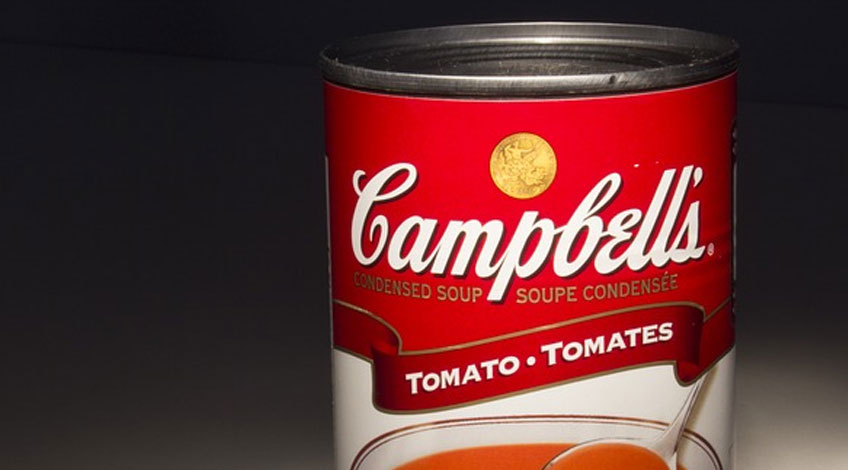
If, like most people you stockpiled on canned soups at the beginning of 2020 because that was all that was left in the shops. Now, with multiple cans of soup in the cupboard, you’re wondering if all that soup is good for you. Anything canned or processed has negative health consequences and canned soup is no different.
Canned Soups Can Possibly Contain BPAs
The lining of the can sometimes contains Bisphenol A (BPA) which is toxic to humans and can leak into the soup. As you are unable to wash soup before you cook it, the BPA remains and when you eat the soup transfers to your body. BPA may have links to some cancers, heart disease and birth defects, but these links have yet to be verified.
Potentially High Salt In Canned Soups
As with most processed foods, tinned soup is heavy on the sodium content. Canned soup producers add extra salt to give their products more taste, this can cause issues with health. Too much salt can lead to hypertension (high blood pressure), oedema (water retention), strokes and heart disease.
Potentially High Fat In Tinned Soups
Lots of canned soups have names that begin with “cream of” this usually means high-fat content. High-fat diets can lead to all manner of health conditions including obesity, oedema, heart disease, strokes, hypertension, bronchial issues, mobility issues and many more.
If you are looking for a convenient, fast way to make soups, consider buying a soup maker. Head over to our best soup maker guide to find out all you’ll need to know to make an informed choice on the features that will suit you and your lifestyle.
Frequently Asked Questions
Due to their high liquid content soups are a great way to stay hydrated. As long as it is home-made nutrient-rich soup it is good for you.
As long as you are having a balanced diet it is perfectly fine to eat soup every day. It is only bad for you if it is all you are eating.
On a short-term basis, you will lose weight by sticking to a soup diet. However, it’s not practical long-term, as you will be deficient in certain nutrients and minerals if all you eat is soup.
Vitamin loss when preparing and cooking vegetables is unavoidable but, as you will be consuming the liquid they are being cooked in they will have more nutrients than plain boiled vegetables.
As long as it is home-made tomato soup it will be healthy and contribute to a weight loss program. Store-bought soups, however, contain too much salt, too much fat (especially “cream of”) and can also contain harmful BPAs.
Vegetable soups are high in key nutrients, vitamins and minerals and low in fats which means you are getting the nutrients your body needs without too many empty calories.
It has been scientifically proven that chicken soup is helpful in relieving the symptoms of the common cold. Symptoms like: sore throat, blocked nose, and congestion in the respiratory system.
If you have a fever, soup is a good meal to have because it’s easy to eat, it keeps you hydrated and it supplies you with nutrients, vitamins and minerals.
All forms of cooking vegetables can destroy some of the nutrients and vitamins, but, some vegetables only release their nutrients during the cooking process, so as long as you consume the liquid the vegetables were cooked in either as part of the gravy or in soups you will still get many nutrients.

